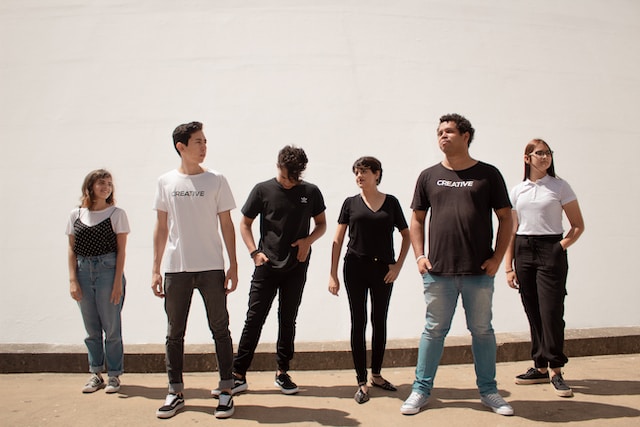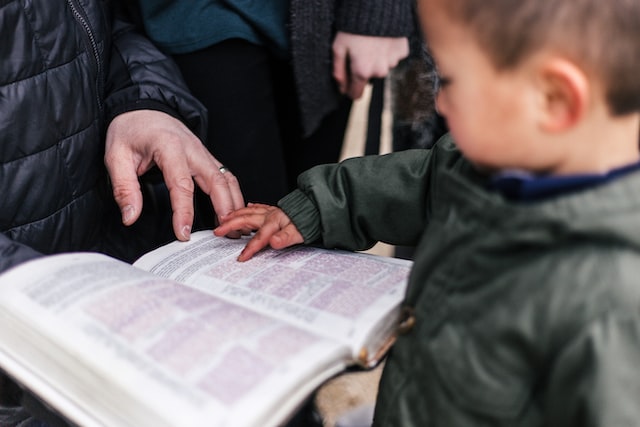Submissions open on bill related to young offenders and ram raids
Tue 26 Sep 2023
Submissions are open on a bill focused on ram raids. The closing date to submit is 20 October 2023.

Ram Raid Offending and Related Measures Amendment Bill
Introduced in August 2023, the purpose of the Ram Raid Offending and Related Measures Amendment Bill is to "...to reduce youth-dominated offending by increasing accountability for those who engage in the criminal behaviour covered by the bill."
The call for submissions gives an overview of the proposed changes. The bill proposes to change legislation to:
- specifically criminalise ram raiding, the new offence would carry a maximum penalty of 10 years’ imprisonment
- allow the taking of bodily samples from 12 and 13 year olds who are before the Youth Court for a ram raiding offence
- allow 12 and 13 year olds to be prosecuted for a ram raid offence in the Youth Court without being a previous offender
- add a factor for the Youth Court to consider where a young person is being sentenced for offending, if the young person livestreamed the offending, posted a copy of the livestreaming online, or distributed a copy of the livestreaming by means of a digital communication
- add an aggravating factor for sentencing for an adult who aids, abets, incites, counsels, or procures any child or young person to commit any offence
- add an aggravating factor for sentencing for a person who livestreamed the offending, posted a copy of the livestreaming online, or distributed a copy by means of a digital communication.
The Ministry of Justice disclosure statement on the bill raises some issues with the proposed legislation stating:
"The changes in this Bill for child are counter to the United Nations Committee on the Rights of the Children position that the minimum age of criminal responsibility should be at least 14 years old.
There are also other applicable international obligations such as the United Nations Convention on the Rights of Persons with Disabilities and the United Nations Declaration on the Rights of Indigenous Peoples. These proposals may raise issues about our alignment with these conventions, particularly as they are likely to disproportionately affect Māori and disabled children and young people."
The disclosure statement also noted:
"Under the active protection and partnership principles, there is a strong te Tiriti o Waitangi based argument that Māori should be consulted. Although there was no consultation with Māori on the proposals in the Bill due to time constraints, officials analysed the proposals in this Bill against the principles of the Treaty of Waitangi and the Crown’s Treaty obligations.
Officials have identified strong Māori interests in some of the proposals, particularly those which target youth offending, and the broadening of provisions allowing for DNA sampling of children (discussed at parts 3.5 and 3.5.1 below) as this whakapapa information has significance in te ao Māori. Māori are likely to be disproportionately affected by the proposals."
The disclosure statement also noted there may be issues with privacy laws for children and young people.
The Attorney-General's report on the bill also raises concerns stating:
"I have considered this Bill for consistency with the New Zealand Bill of Rights Act 1990 (Bill of Rights Act). I conclude it appears to be inconsistent with the right of a child, in determination of a charge, to be dealt with in a manner that takes account of the child’s age (section 25(i)), the right to be secure against unreasonable search or seizure (section 21), and the right to freedom of expression (section 14)."
The Attorney-General discusses the minimum age of criminal responsibility including international standards and calls from the United Nation Convention on the Rights of the Child. The report also highlights:
"The evidence indicates formal criminal justice involvement is often associated with adverse consequences for the child and society, in particular by potentially increasing chances of reoffending. On the other hand, children have greater capacity for rehabilitation, and this is reflected in the relevant articles of both the ICCPR and UNCROC which stress responses to child offending that promote rehabilitation, reintegration and avoidance of judicial proceedings. These materials indicate early contact with the criminal justice system should be avoided."
For more information about the Government's work programme related to young people who offend, see the Beehive media releases:
- System shake-up to tackle youth and gang crime
- Youth Justice system to be strengthened
- New offence for ram raiding, young offenders to face more accountability
- New intensive turnaround programme launched to break the cycle of offending.
Responses to the proposed legislation
In response to the Government's announcements on youth justice and young offenders:
Chief Children’s Commissioner Judge Frances Eivers, said
"These announcements have signalled the Government’s intent in very broad strokes. As an advocate for children’s rights and welfare, we cannot condone law changes that seek to incarcerate children when the emphasis should be on looking at the causes of the offending with a view to eliminating it in the future."
Amnesty International is calling for the Government to raise the minimum age of criminal responsibility from 10 to at least 14 years old in general, saying:
“Today’s announcement flies in the face of human rights and ignores the evidence that punitive approaches don’t work to reduce youth offending. Just last night, the United Nations Committee Against Torture asked the NZ Government what steps it was taking to raise the age of criminal responsibility in line with international best standards, which would be at least 14 years old. Instead, the Government is giving up on its commitment to children’s rights by introducing a new offence that could criminalise 12- and 13-year-olds.”
Amnesty International Aotearoa New Zealand, JustSpeak and People Against Prisons Aotearoa also issued a joint media release writing they "...are deeply disappointed by the changes that have been announced. We are calling on the Government to commit to transformational change by the number of youth justice residences and ensuring community based rehabilitation is prioritised for young people."
See further responses in the media below.
Related news
The Paediatric Society of New Zealand and Amnesty International are calling for the age of criminal responsibility in Aotearoa New Zealand to be raised, noting that currently 10 and 11-year-olds can face life sentences.
In their Concluding observations on the sixth periodic report of New Zealand (2023), the United Nations Committee on the Rights of the Child noted they were seriously concerned that "The minimum age of criminal responsibility is below international standards and is offence-based rather than child-centred" and "Māori children remain disproportionately represented in the youth justice system and are overrepresented among young people who die by suicide in closed institutions" (see paragraph 42).
In their recent Concluding observations on the seventh periodic report of New Zealand, the United Nations Committee against Torture raised the same concerns about the minimum age of criminal responsibility and the disproportionately high numbers of Māori children in the juvenile justice system (see paragraph 37d). The report specifically recommended the State should (paragraph 38):
(a) Raise the minimum age of criminal responsibility, in accordance with international standards;
(b) Repeal the practice of remanding children into police custody and reduce the proportion of children in secure youth justice residences who are on remand, including by investing in the development of community-based residences and strengthening the availability and use of non-custodial measures;
(c) Actively promote non-judicial measures, such as diversion, mediation and counselling, for children accused of criminal offences and, wherever possible, the use of non-custodial sentences, such as probation or community service;
(d) Ensure that all children have access to mandatory legal assistance from the outset of their deprivation of liberty and that they are never interrogated without the presence of a lawyer;
(e) Ensure that detention conditions comply with international standards, including with regard to access to education and health services, and, for pretrial detention, that detention is reviewed on a regular basis with a view to its withdrawal;
(f) Take all measures necessary to reduce the incarceration rate of Māori children and ensure that their detention undergoes regular judicial review;
(g) Explicitly prohibit the use of force, including physical restraints, and of pepper spray and spit hoods against children under supervision and promptly investigate all cases of abuse and ill-treatment of children in detention and adequately sanction the perpetrators;
(h) Immediately end the practice of solitary confinement for children in detention, including informal solitary confinement;
(i) Provide children in conflict with the law with information about their rights, ensure that they have access to effective, independent, confidential and accessible complaint mechanisms and legal aid and protect complainants from any risk of reprisals.
See further commentary on the UN reports in the related media below.
Submissions are also open on the Electoral (Lowering Voting Age for Local Elections and Polls) Legislation Bill. This bill would allow young people 16 or 17 years old to be eligible to vote in local elections and polls. It would not change the voting age for parliamentary elections. The bill would establish a new category of electors, named youth electors, and provide for 16-year-olds and 17-year-olds to be registered on a youth electoral roll. Submissions are due 20 October 2023.
The Office of the Privacy Commissioner is asking for feedback on whether the current laws and regulations protecting children’s privacy rights are working, today and in the future. The project is initially only seeking feedback from professionals who work with children and non-government organisations who advocate for children and young people. The Office plans to ask for feedback in early 2024 "...from tamariki/children and rangatahi/young people, as well as whānau and the wider community. For tamariki and rangatahi, we will be engaging via iwi." Feedback is due by 30 November 2023. Update: The final report from the project, Safeguarding children and young people’s privacy in New Zealand, was published in April 2024. See the Privacy Commissioner's media release New Survey Shows We All Need To Sharpen Up About Privacy Risks For Kids.
Related media
Law Society sounds warning over proposed ram raid legislation, Law Society News, 14.03.2024
Teen offenders: ‘We are your future – whether we’re in jail or not’, Newsroom, 13.03.2024
Teens beg MPs to stop ram raid bill as committee hears opposition, NZ Herald, 12.03.2024
Putting the boot in, Newsroom, 10.03.2024
Boot camps whole new thing says Chhuor, Waatea News, 08.03.2024
Under fire Oranga Tamariki to oversee “beneficial” boot camps, Waatea News, 06.03.2024
'Military-style academy' for young offenders to be running by mid-year, RNZ, 06.03.2024
First boot camp for young offenders to be running by mid-year, Minister says, RNZ, 05.03.2024
Govt cracking down on serious youth offending, Beehive media release, 05.03.2024
Proposed ram raid law 'leads nowhere good', Children's Commissioner says, RNZ, 26.10.2023
Ram Raid Offending and Related Measures Amendment Bill Judge Frances Eivers, Waatea News, 26.10.2023
The Ram Raid Bill w/ Lisa McLaren October 24, 2023, b95fm, 24.10.2023
Ram raid plea: Don’t throw more children into crowded youth justice homes, Newsroom, 19.10.2023
Youth justice programme expands to break cycle of offending, Beehive media release, 03.10.2023
Youth crime isn't more common, it's just more visible, RE:news, 26.09.2023
Govt forges ahead with legislation despite breaching Kiwis' fundamental rights, Newshub, 30.08.2023
Judge Frances Eivers: Let’s save one child at a time, E-Tangata, 06.08.2023
UN Calls Out New Zealand’s Youth Justice Record, Press Release: Mana Mokopuna, 01.08.2023
Justice reform needs a vision - and someone with the guts to speak up for it, The Post, 20.07.2023
Government wants to give police power to convict 12-year-old ram raiders, The Post, 20.07.2023
Ministers commit to building two new 'high needs' youth justice facilities, Stuff, 18.07.2023
Finding and training the right youth justice staff evades MPs, Newsroom, 19.07.2023
Government to build two more youth justice units, RNZ, 19.07.2023
Questions raised over plans, RNZ, 19.07.2023
Organisation concerned by crime crackdown policy, RNZ, 18.07.2023
End of an era: Children’s Commissioner role disestablished, RNZ, 30.06.2023
Image: Devin Avery on Unsplash





